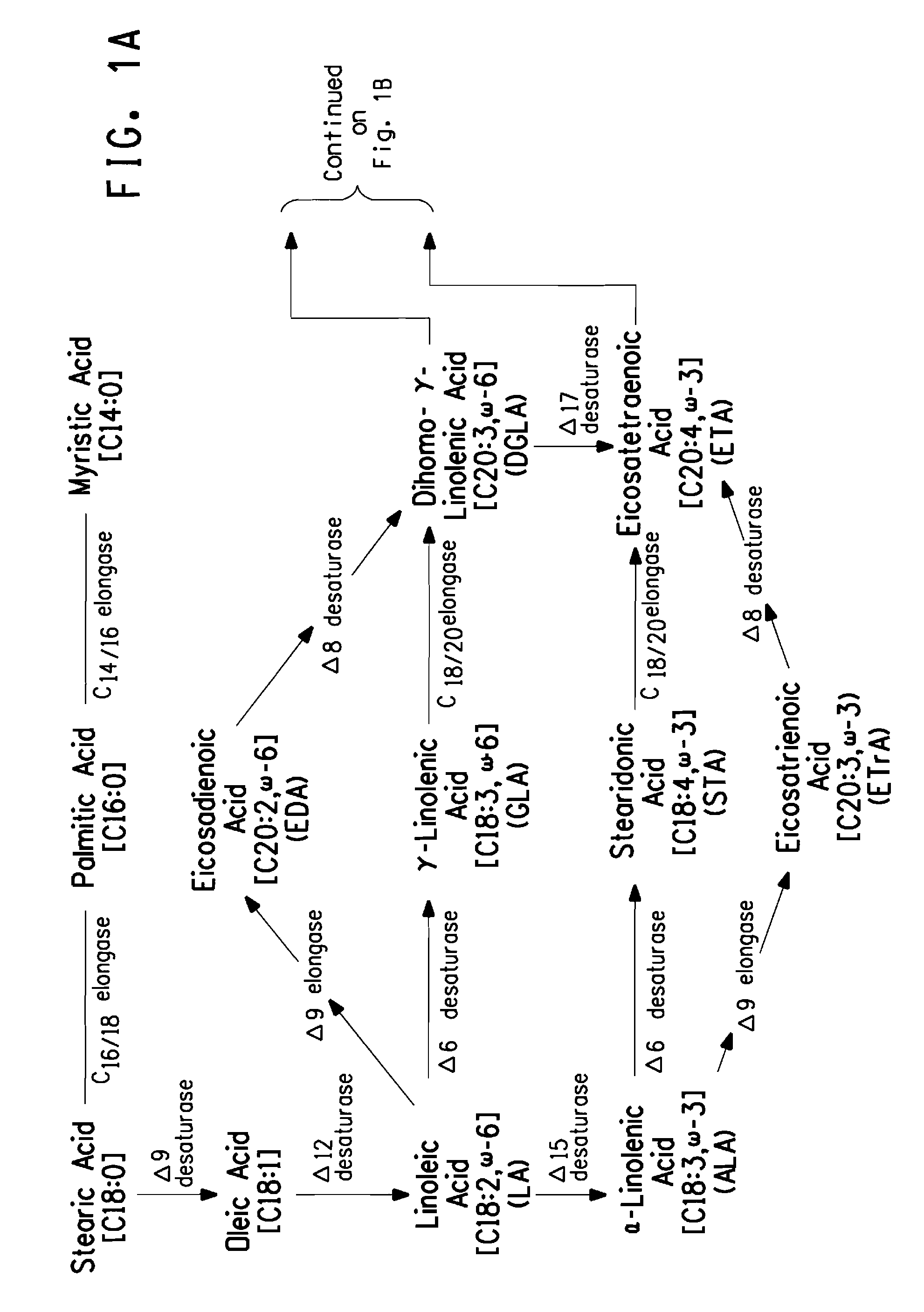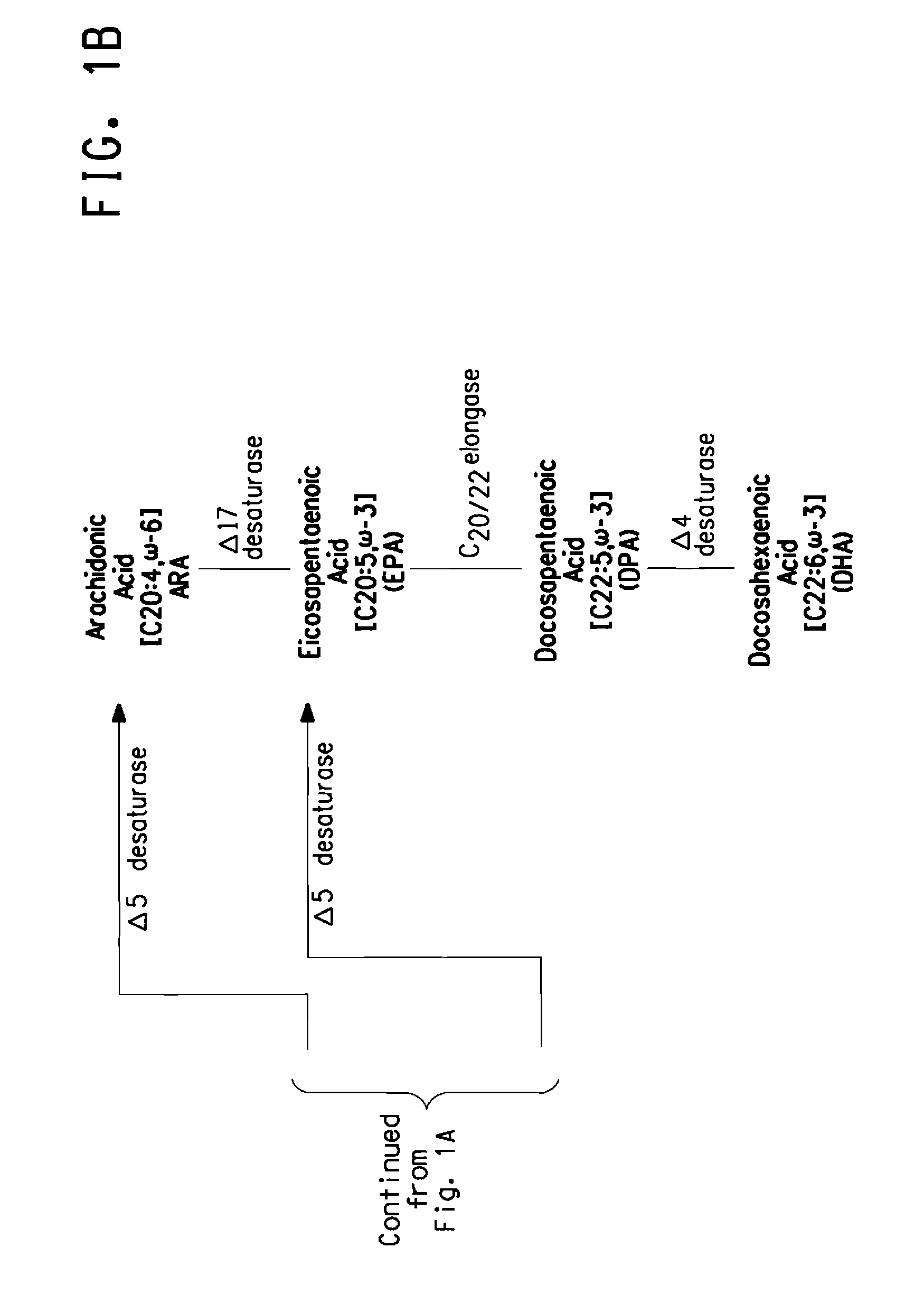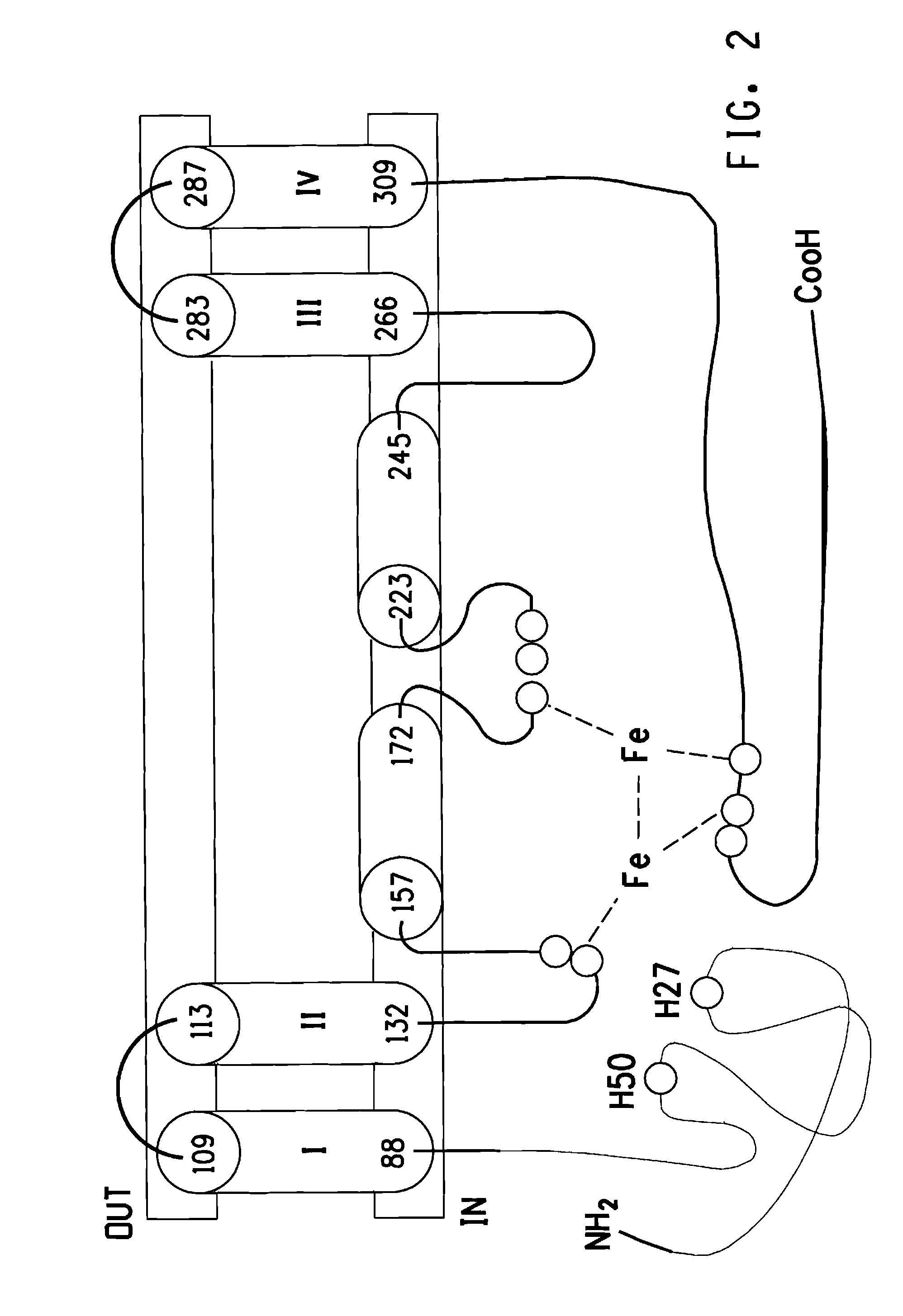Mutant Δ8 desaturase genes engineered by targeted mutagenesis and their use in making polyunsaturated fatty acids
a technology of desaturase and 8, which is applied in the field of biotechnology, can solve the problems of limited options in the construction of the recombinant 9 elongase/8 desaturase pathway
- Summary
- Abstract
- Description
- Claims
- Application Information
AI Technical Summary
Benefits of technology
Problems solved by technology
Method used
Image
Examples
example 1
Development of a Topological Model for EgD8S
[0305]BLASTP analysis showed that EgD8S contained two domains: an N-terminal cytochrome b5 domain (located between amino acid residues 5 to 71 of SEQ ID NO:10) and a C-terminal desaturase domain (located between amino acid residues 79 to 406 of SEQ ID NO:10). In order to mutate the amino acid sequence of EgD8S without negatively affecting the Δ8 desaturase activity, a topological model (FIG. 2) was developed based on the logic and analyses below.
[0306]First, the TMHMM program (“Prediction of transmembrane helices in proteins”; TMHMM Server v. 2.0, Center for Biological Sequence Analysis, BioCentrum-DTU, Technical University of Denmark, DK-2800 Lyngby, Denmark) predicted that EgD8S had four membrane-spanning helices (amino acid residues 113-132, 223-245, 266-283 and 287-309), with both the N- and C-termini located on the cytoplasmic side of the membrane.
[0307]The membrane-bound fatty acid desaturases belong to a super-family of membrane di-...
example 2
Strategies to Select Amino Acid Residues for Mutation
[0313]Close homologs to the EgD8S sequence were determined by conducting BLAST (Basic Local Alignment Search Tool; Altschul, S. F., et al., J. Mol. Biol., 215:403-410 (1993)) searches for similarity to sequences contained in the BLAST “nr” database (comprising all non-redundant GenBank CDS translations, sequences derived from the 3-dimensional structure Brookhaven Protein Data Bank, the SWISS-PROT protein sequence database, EMBL and DDBJ databases). Specifically, EgD8S (SEQ ID NO:10) was compared for similarity to all publicly available protein sequences contained in the “nr” database, using the BLASTP algorithm (Altschul et al., J. Mol. Biol. 215:403-410 (1990)) provided by the NCBI.
[0314]Ignoring all hits to any Δ8 desaturase isolated from Euglena gracilis, the BLASTP searches showed that EgD8S was most homologous to the following proteins:
[0315]
TABLE 6Homologous Proteins To EgD8S, Based On BLASTP Analysis%GenBank%Simi-Accession...
example 3
Generation of Yarrowia lipolytica Strains Y4001 and Y4001U to Produce about 17% EDA of Total Lipids
[0323]The present Example describes the construction of strains Y4001 and Y4001U, derived from Yarrowia lipolytica ATCC #20362, and each capable of producing 17% EDA (C20:2) relative to the total lipids. Both strains were engineered to test functional expression of EgD8S and mutations thereof. Thus, it was necessary to construct host strains capable of producing the Δ8 desaturase substrate, EDA.
[0324]The development of strain Y4001U, having a Leu- and Ura-phenotype, required the construction of strain Y2224 (a FOA resistant mutant from an autonomous mutation of the Ura3 gene of wildtype Yarrowia strain ATCC #20362) and strain Y4001.
Generation of Strain Y2224
[0325]Strain Y2224 was isolated in the following manner: Yarrowia lipolytica ATCC #20362 cells from a YPD agar plate (1% yeast extract, 2% bactopeptone, 2% glucose, 2% agar) were streaked onto a MM plate (75 mg / L each of uracil and ...
PUM
| Property | Measurement | Unit |
|---|---|---|
| dry cell weight | aaaaa | aaaaa |
| polyunsaturated fatty acid | aaaaa | aaaaa |
Abstract
Description
Claims
Application Information
 Login to View More
Login to View More - R&D
- Intellectual Property
- Life Sciences
- Materials
- Tech Scout
- Unparalleled Data Quality
- Higher Quality Content
- 60% Fewer Hallucinations
Browse by: Latest US Patents, China's latest patents, Technical Efficacy Thesaurus, Application Domain, Technology Topic, Popular Technical Reports.
© 2025 PatSnap. All rights reserved.Legal|Privacy policy|Modern Slavery Act Transparency Statement|Sitemap|About US| Contact US: help@patsnap.com



